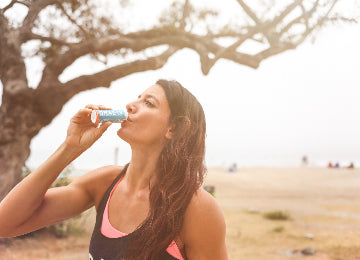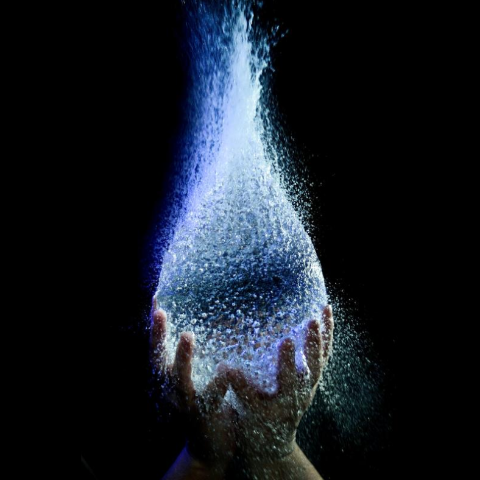Hydration, Dehydration and Post-Workout Recovery

Sticking to a regular exercise routine is one of the healthiest things you can do for your body and your mind, but it can be easy to forget that what you do to recover can have just as big of an impact on your health. When you exercise you put your muscles under stress. During the recovery period after and between workouts, your body works to regain balance, repair itself, and gain strength. There are many things you can do to promote post-workout recovery, but hydrating the right way can have the most significant impact on your results.
Proper Hydration
Water plays a critical role in the process of exercise recovery. During a workout, your body is put under stress, and muscle tissue breaks down. During recovery, your body repairs itself using protein synthesis and becomes stronger. Muscles must be well hydrated for protein synthesis to function quickly. If you are dehydrated after a workout, your more likely to experience soreness and your muscles will rebuild slower. It is also essential to replace glycogen stores in the muscles after exercise by eating nutritious food. If your muscles are dehydrated, they can’t hold the glycogen they need to work at their best. Hydration improves your body’s ability to break down food and absorb the nutrients it needs to function at its best.
Hydration also plays a prominent role in heart rate recovery and the body’s ability to bounce back from the stress of exercise. The lack of proper hydration can cause low blood volume. When you don’t have enough blood, your heart has to work harder to oxygenate every part of your body. This strain on your heart can cause fatigue and limit recovery and motivation for your next workout.
Salts and Hydration
You have probably heard that electrolytes or “salts” are a crucial component of recovery. The right balance of fluid and salts is essential, but that doesn’t always mean you need more salts after a workout. Exercise Recovery has a lot to do with getting back to homeostasis – an equilibrium in our bodies that involves blood pH, core body temperature, and fluids.
Throughout the day your body loses fluids during breathing, exercising, sweating, and peeing. Your brain continually monitors the levels of salt and fluids you have available in your blood, so it can send the right signals when it’s out of balance. If you have a lack of sodium or other electrolytes, your brain can signal you to crave salty tasting foods. When it detects an increase in sodium concentrations due to fluid loss from exercise, it sends thirst signals and tells your kidneys to send more water to your bloodstream, making you pee less. Your brain is always working with your body to find the right balance.
With regular vigorous exercise, excessive sweating can disrupt this system and have a dramatic effect on your fluid and electrolyte balance. In fact, a few hours of sweating every day can quadruple your rate of fluid turnover. It can be hard to get the adequate amount of fluid and sodium replacement after sweating because there isn’t a one-size-fits-all rule about how much athletes need to drink for recovery. Most experts agree that vigorous exercise almost always leads to some level of uncorrected hydration and lack of proper rebalance of fluid and electrolyte levels. So, while it's essential to rehydrate for recovery, you need to do it mindfully because too much water, or sodium can throw your equilibrium further out of balance.
Water Utilization
One way to avoid over-correcting your fluid and electrolyte balance is to use the water you do drink more efficiently. Water serves many functions in your body that can affect post-workout recovery. It’s vital for cell functions, chemical and metabolic reactions, temperature regulation, nutrient transport, and waste removal. Proper utilization of the water you drink is critical for reaping all its functional benefits.
Water needs to penetrate the cells in your body for optimal hydration -- a process known as extracellular hydration. If the water you drink passes through the body without being properly absorbed, your body doesn’t recover as well on a cellular level. A great way to boost water utilization is by using structured water – water that has the right amount of electrical charges so that it can be adequately held within your cells.
Everyone knows that hydration is crucial for recovery. But drinking water with a balance of trace minerals, crystalloid electrolytes, and structure, allows you to metabolize water more efficiently to promote instant hydration on a cellular level. By adding a hydration catalyst like ORAL I.V., you can elevate your recovery process beyond merely replacing electrolytes. ORAL I.V. works to move water to the places your body needs it most – your cells.


